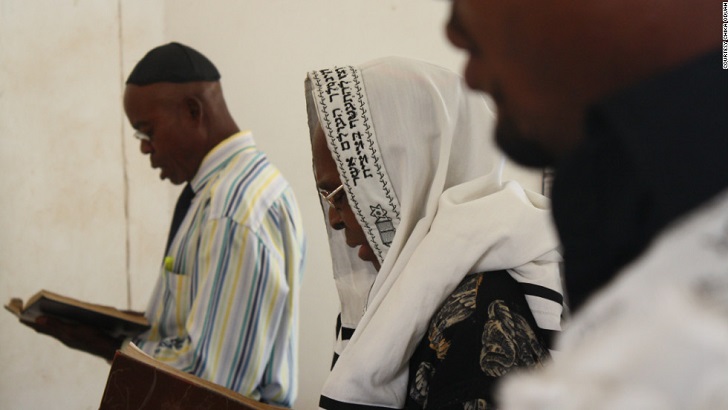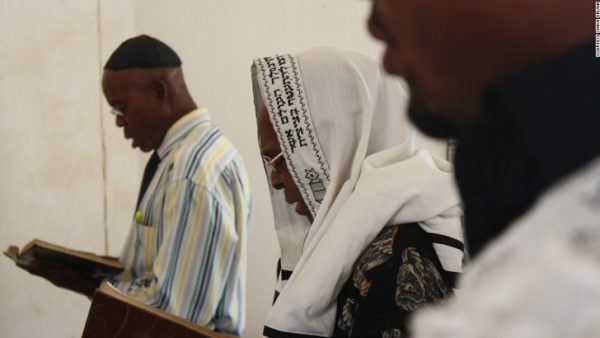The question of origins is always a fascinating one to explore, regardless of what race or ethnic group you choose to examine- except you’re not a history buff. But for those of us who love to saunter through the winding and sometimes confusing terrain that is ethnic history, there are many answers to be found, and many more questions to come upon.
The Igbo are the dominant ethnic group in Nigeria’s South Eastern region. A vast assortment of stories abounds, all of them purporting to account for their existence as an ethnic group. These have been handed down through generations. Then there are speculations from the experts who labour to analyse these accounts, and look at available archaeological and linguistic evidence in order to come up with a “more refined” explanation of how the Igbos came to be. Needless to say, it is a process that is prone to controversy.
One of the more controversial claims about the origin of the Igbo people is the so-called “Oriental or Jewish Hypothesis”, which posits ancient Israel as the original homeland of the Igbos. This idea has been around for a long time. Olaudah Equiano, an Igbo Christian educated free slave, wrote in 1789 that certain apparent similarities between some Igbo and Jewish customs led him to “to think that one people had sprung from the other”. A report by Chika Oduah for CNN in 2013 about the Igbo Jews renewed interest in the subject. Like many other reports and documentaries dealing with this matter, there were references to such things as perceived linguistic and traditional similarities between the ancient Hebrews and the Igbo. Another well known ‘piece of evidence’ frequently spoken about by them is the mention of Eri, son of Gad and grandson of Jacob in the Biblical book of Genesis (46:16), who they insist is the same as (or a forefather of) Eri, founder of the Nri priestly kingdom- and perhaps by implication, ancestor of the Igbo people. (1)
Critics of the supposed Jewish connection hypothesis, however, say that the idea is rather far-fetched. They say that the ‘linguistic evidence’ cited by proponents of the idea is too weak and selective; that the cultural similarities alluded to them are in fact not peculiar to the Igbo; and that the Sahara desert was, in those days, barrier enough to forbid roaming Jews penetrating beyond North Africa (which had a thriving Jewish population until recently).(2) They point out that artefacts discovered in such places as Nsukka and Ibagwa suggest that humans have inhabited what is now South Eastern Nigeria for at least 5,000 years- about 1,000 years before Abraham was born –and possibly even longer.(3)(4)
Although there is no agreed upon theory of the origin of the Igbo people, the picture emerging from recent research is not of a single migration into Igboland by an original group, but of several waves of migrations. The Igbo language is known to bear similar traits with other languages in the Niger-Congo language family. This, along with geographical evidence points to a mixture of Central African and West African influences. Migrations from the north by Igalas who were driven southwards by the advancing Fulani in the 19th century, as well as earlier entrants like the Bini who influenced Onitsha and parts of the southern realms of Igboland, also contributed to giving the Igbo peoples their present cultural complexion.
Sources:
(1) https://iduueri.wordpress.com/2010/06/18/obugad-the-house-of-gad/
(2) A Re-Emerging Scam: A Review of the Jews of Nigeria
https://igbocybershrine.com/2013/11/13/a-re-emerging-scam-a-review-of-the-jews-of-nigeria-part-3/
(3) Eze, E.U. (2011) Archaeological Research and Sustainable Tourism Development: A Case Study of Nsukka and Environs. M.Sc thesis.
http://www.unn.edu.ng/publications/files/images/EZE%20UCHENNA%20IFUNANYA.pdf
(4) A Re-Emerging Scam: A Review of the Jews of Nigeria
https://igbocybershrine.com/2013/11/13/a-re-emerging-scam-a-review-of-the-jews-of-nigeria-part-3/


